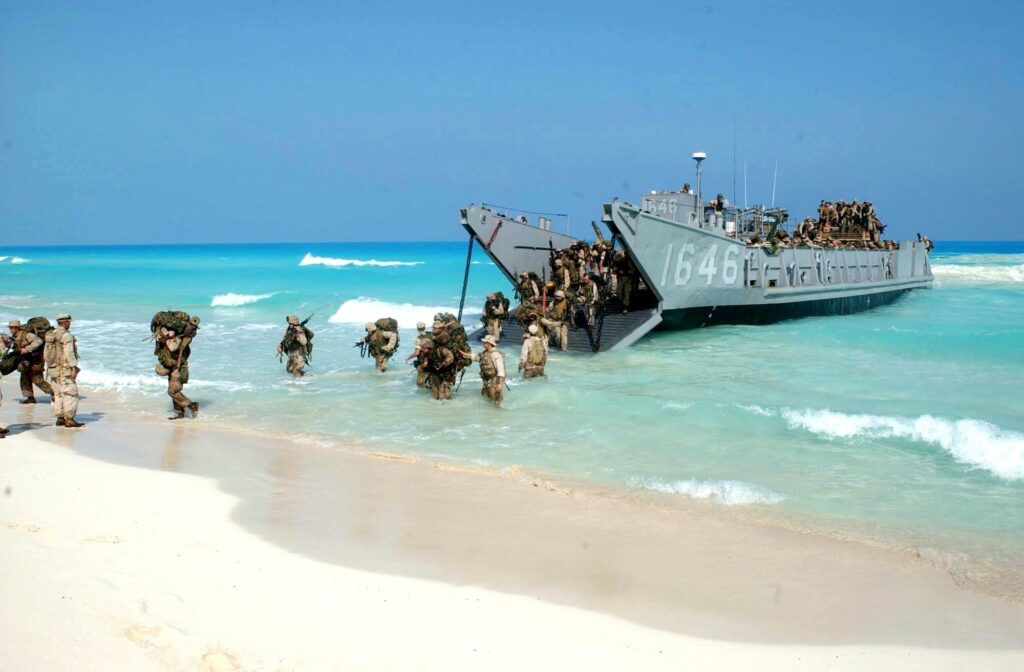Austal has begun construction of the US Navy’s Landing Craft Utility (LCU) in Mobile, Alabama, as part of a contract signed in 2023.
Valued at $91.5 million, the agreement ordered three LCU 1700-class platforms with heavy-lift capacity for up to 170 tons (154,000 kilograms) of payload.
The framework includes the production of nine additional vessels and corresponding support services for the navy.
LCUs transport cargo, troops, and tracked and wheeled vehicles from shore to shore or ship to shore. Alongside combat roles, the fleet is used for surveillance, small and dive team support, port cleaning, and humanitarian tasks.
The platforms are commonly deployed alongside amphibious assault ships during warfare scenarios.
“The LCU provides strategic value and versatility to the Navy-Marine Corps team,” Combat Development and Integration Deputy Commandant Lt. Gen. Karsten Heckl stated during the construction ceremony.
“These landing craft will significantly enhance our sea-based Marine Air-Ground Task Forces and Marine Expeditionary Units, providing them with unparalleled flexibility, and the capability to maneuver Marines, sailors and equipment in environments unreachable by other means.”
The LCU 1700
The LCU 1700 fleet is the latest iteration of US Navy landing crafts. It was designed to replace the 1466, 1610, and 1627 models that have been in service since the 1990s.
The LCU 1700 incorporates a steel hull with wide deck space to carry approximately 350 warfighters or up to two M1A1 Abrams main battle tanks.
Each craft measures 139 feet (42 meters) long and has a 31-foot (9-meter) beam.
It is powered by two 500-horsepower diesel engines for a maximum speed of 11 knots (13 miles/20 kilometers per hour) and a range of up to 1,200 nautical miles (1,380 miles/2,222 kilometers).
The vessel is equipped with four crew-operated mounted weapons, a military communications suite, commercial navigation radar, and amphibious assault direction systems.
Program With Swiftships
The initial agreement to construct the LCU 1700 was awarded to Louisiana-based contractor Swiftships. A follow-on contract was exercised for two additional craft in 2019 and another for four platforms in 2020.
In February, the US Navy terminated the contract with the company due to disputes about the development. A total of 32 systems were originally planned under the framework.



